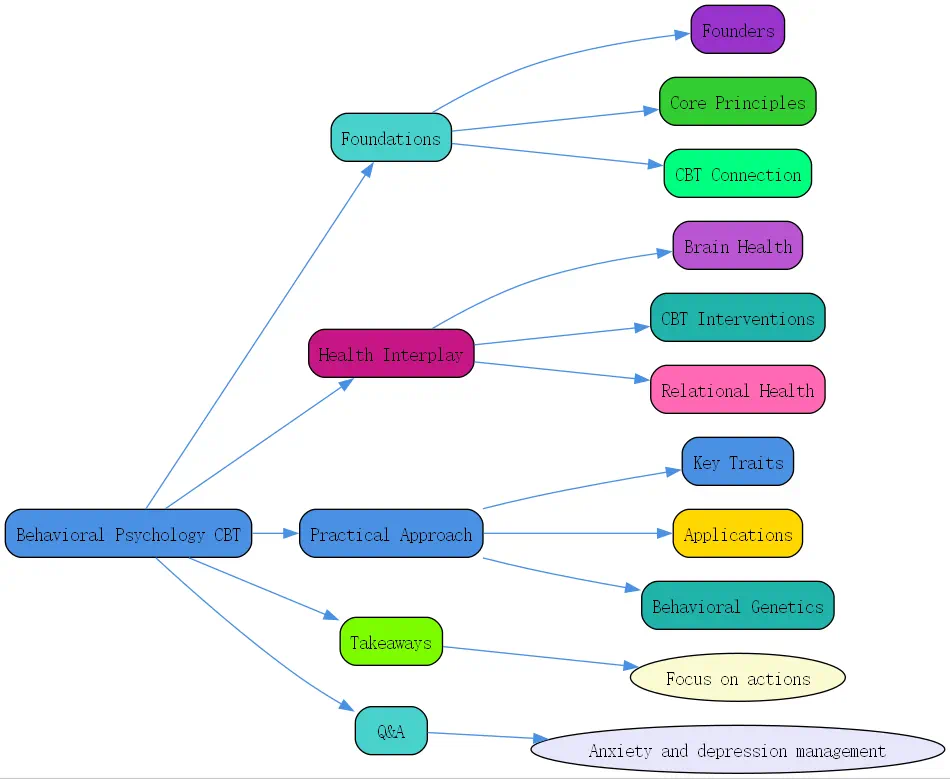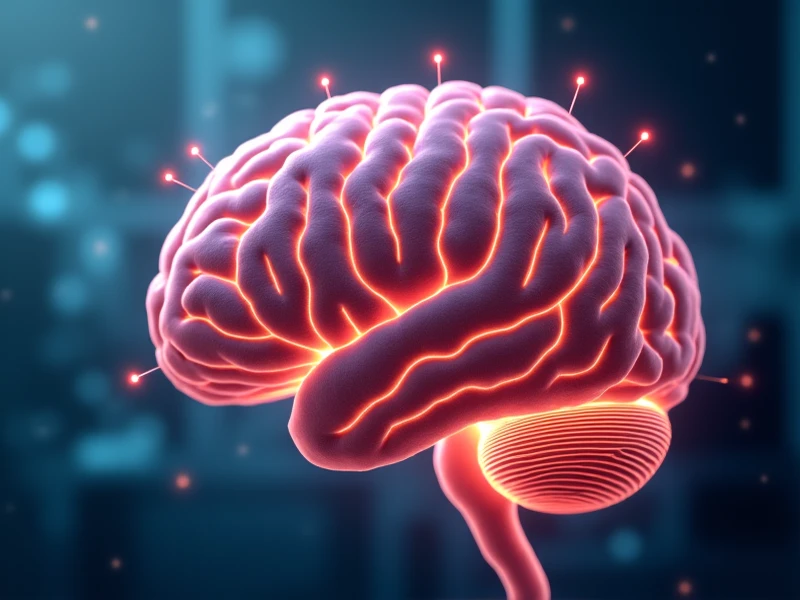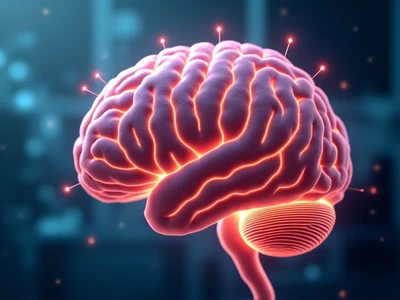Behavioral Psychology CBT: Understanding Its Foundations

Behavioral psychology stands at the forefront of understanding human actions, thoughts, and emotions. By delving into its origins, principles, and applications, we uncover how key figures shaped this essential field and how practices like Cognitive Behavioral Therapy (CBT) evolved to improve mental health outcomes. Whether you’re familiar with behavioral psychology or looking to learn more, this guide provides an in-depth exploration.
Who Founded Behavioral Theory Psychology?

Behavioral psychology, also known as behaviorism, began with the groundbreaking work of pioneers whose studies fundamentally altered the landscape of psychological science. Here’s a closer look at these foundational figures:
- John B. Watson: Often credited as the person who founded behavioral psychology, Watson emphasized observable behaviors over introspective methods. His landmark experiment with “”Little Albert”” demonstrated how emotional responses could be conditioned and set the stage for behaviorism’s rise.
- Ivan Pavlov: Renowned for his work in classical conditioning, Pavlov’s experiments with dogs showed how environmental stimuli could elicit specific behaviors, forming a cornerstone of behavioral theory psychology.
- B.F. Skinner: Expanding on Watson and Pavlov, Skinner introduced operant conditioning, which explored reinforcement and punishment as tools for behavior modification. His contributions greatly influenced therapies derived from behavioral psychology.

These figures collectively shaped behavioral psychology, integrating science into the study of how humans and animals learn and adapt through experience. For those wondering, “Who founded behavioral genetics psychology?” it’s another fascinating field exploring the genetic interaction with environmental influences, helping to uncover biological factors linked to behavior.
The Core Principles of Behavioral Psychology
Behavioral psychology focuses on understanding how actions, thoughts, and emotions are learned and modified. Core principles include:
- Learning Through Conditioning: Techniques like classical and operant conditioning reveal how external stimuli and reinforcement influence behavior over time.
- Observable Actions Over Introspection: Early behaviorists argued for the importance of studying behaviors that can be seen and measured, rather than subjective thoughts.
- Environmental Influence: Behaviorists believe that much of human behavior results from environmental factors, rejecting the notion that behavior stems primarily from inherent traits.
Understanding these principles is essential to exploring behavioral psychology as it provides the foundation for therapies like Cognitive Behavioral Therapy (CBT).
The Connection to Cognitive Behavioral Therapy (CBT)
CBT merges the principles of behavioral psychology with cognitive psychology, emphasizing the relationship between thoughts, beliefs, and behaviors. It evolved from the work of behavioral psychologists to include cognitive techniques, making it one of the most effective therapies for managing anxiety and depression.
CBT programs help individuals:
- Identify and modify negative thinking patterns.
- Practice actionable techniques to change behaviors and emotional responses.
- Utilize exposure therapy for phobias, trauma, or other distressing issues.
For those exploring anxiety management techniques psychology, CBT stands as a scientifically-backed approach, often integrating methods such as mindfulness and behavioral experiments.
Understanding Brain, Psychological, and Relational Health in Behavioral Psychology
Behavioral psychology provides a framework for understanding the complex interplay between brain health, psychological interventions, and relational well-being. Here’s how these factors contribute to mental and emotional health improvement:

Brain Health and Its Impact on Behavior
The brain significantly influences mental health outcomes, particularly in conditions like anxiety and depression. Science reveals how factors such as toxic stress can alter brain regions like the amygdala and hippocampus, leading to generalized anxiety or depression.
Key strategies to improve brain health include:
- Serotonin Medications: Medications targeting serotonin play a direct role in shrinking the amygdala and enlarging the hippocampus, offering relief to individuals struggling with chronic anxiety and depression.
- Mindfulness-Based Stress Reduction: Incorporating mindfulness techniques can help soothe the brain, reducing stress and improving emotional regulation.
- Exercise: Physical activity enhances brain health, promoting emotional well-being and critical neurological functions.
For individuals seeking actionable steps to improve brain function, talking to a medical provider is invaluable. Science highlights the importance of serotonin-based treatments in managing generalized anxiety and depression, proving that brain health is intricately tied to behavior.
Psychological Interventions: Cognitive Behavioral Therapy (CBT)
Psychological health is central to behavioral psychology, with CBT serving as one of its most effective therapeutic approaches. This method is structured to help individuals alleviate anxiety and depression through the following techniques:
- Trauma-Centered Therapy: Ideal for past traumas or PTSD, trauma-focused therapy works to process distressing experiences in a healthy manner.
- Dialectical Behavioral Therapy (DBT): Though originally designed for personality disorders, DBT has proven highly effective in helping individuals manage their emotions, improve self-perception, and strengthen relationships.
- Unified Protocol: A comprehensive program emphasizing emotional understanding. Built on decades of research, it defines emotions as a natural response to survival.
Understanding and managing emotions is critical to mental well-being. Often, individuals overwhelmed by fear, anger, or sadness find relief in therapies that help moderate emotional intensity and frequency. Emotional management strategies, alongside CBT programs, empower individuals to thrive despite psychological challenges.
Relational Health and Its Role in Well-being
Relationships form a cornerstone of human survival, shaping mental health outcomes through connections rooted in mutual care, empathy, and support. Behavioral psychology helps bridge relational health with mental well-being through:
- Attachment Theory: Explains how bonds formed in childhood influence how individuals relate to others later in life.
- Object Relations Theory: Describes the importance of early relationships in shaping personal perceptions and relational dynamics.
- Serve and Return Practices: Developed by Harvard, these practices emphasize reciprocal communication in relationships, fostering resilience and mental health.
Research confirms the importance of “”mutually caring relationships”” in psychological stability. For example, Harvard’s longitudinal study found that the warmth of relationships throughout life has the most significant impact on life satisfaction. Such connections require three key traits: affection, belief in one another, and support during difficult times. In the words of Harvard researchers, relationships are “the active ingredients in building resilience.”
Applying Behavioral Psychology: A Practical Approach
Behavioral psychology isn’t limited to theory—it’s deeply embedded in practical approaches to improve mental health and interpersonal well-being.
Behavioral Psychology Person: Key Traits and Characteristics
A “behavioral psychology person” embraces problem-solving and decision-making rooted in observable actions, environmental analysis, and learning patterns. Traits often include:
- Adaptability: They analyze environmental factors impacting behavior and adjust responses accordingly.
- Action-Oriented Thinking: Solutions focus on measurable outcomes and modifications to behavior rather than abstract introspection.
- Resilience: They understand the importance of balancing emotional health, brain health, and relational connections when addressing challenges such as anxiety and depression.
Behavioral Psychology Applications
Behavioral psychology’s principles are applied across various domains to enhance daily life, including:
- Understanding Anxiety and Depression: CBT and related strategies help individuals manage symptoms effectively, promoting emotional control and satisfaction.
- Anxiety Management Techniques Psychology: Techniques like mindfulness practices, exposure therapy, and relational interventions empower individuals to regain control over their mental health.
- Behavioral Interventions in Workplace Settings: Systems promoting positive reinforcement often increase productivity and satisfaction.
Behavioral Genetics Psychology and Its Relevance
Behavioral genetics psychology dives into the interplay between genetic factors and environmental influences. Studies reveal how biology intersects with life experiences to shape behaviors, providing insights into issues like predispositions to anxiety, depression, and resilience techniques. This interdisciplinary field highlights the importance of understanding both nature and nurture when discussing behavioral psychology.
Takeaways
1. Behavioral psychology focuses on the learning and modification of actions through environmental factors and experiences. 2. Figures like Watson, Pavlov, and Skinner were instrumental in founding behavioral theory psychology. 3. CBT evolved from these foundations, combining behavior modification and cognitive techniques to manage anxiety and depression. 4. Brain health, emotional understanding, and relational connections significantly contribute to overall mental well-being. 5. Positive relationships, as demonstrated by studies, serve as critical tools for resilience and life satisfaction.
Q&A Section
Q: How does behavioral psychology address anxiety and depression? A: Behavioral psychology tackles anxiety and depression by analyzing the learned behaviors and thought patterns contributing to these conditions. Approaches like CBT focus on modifying negative beliefs, behaviors, and emotional responses. Additionally, techniques such as mindfulness and relational therapies emphasize managing emotions and fostering mutually caring relationships. For effective management strategies, check out anxiety management techniques psychology.
BrainTalking continues to advance education in behavioral psychology, helping individuals understand mental health through science-backed approaches.




